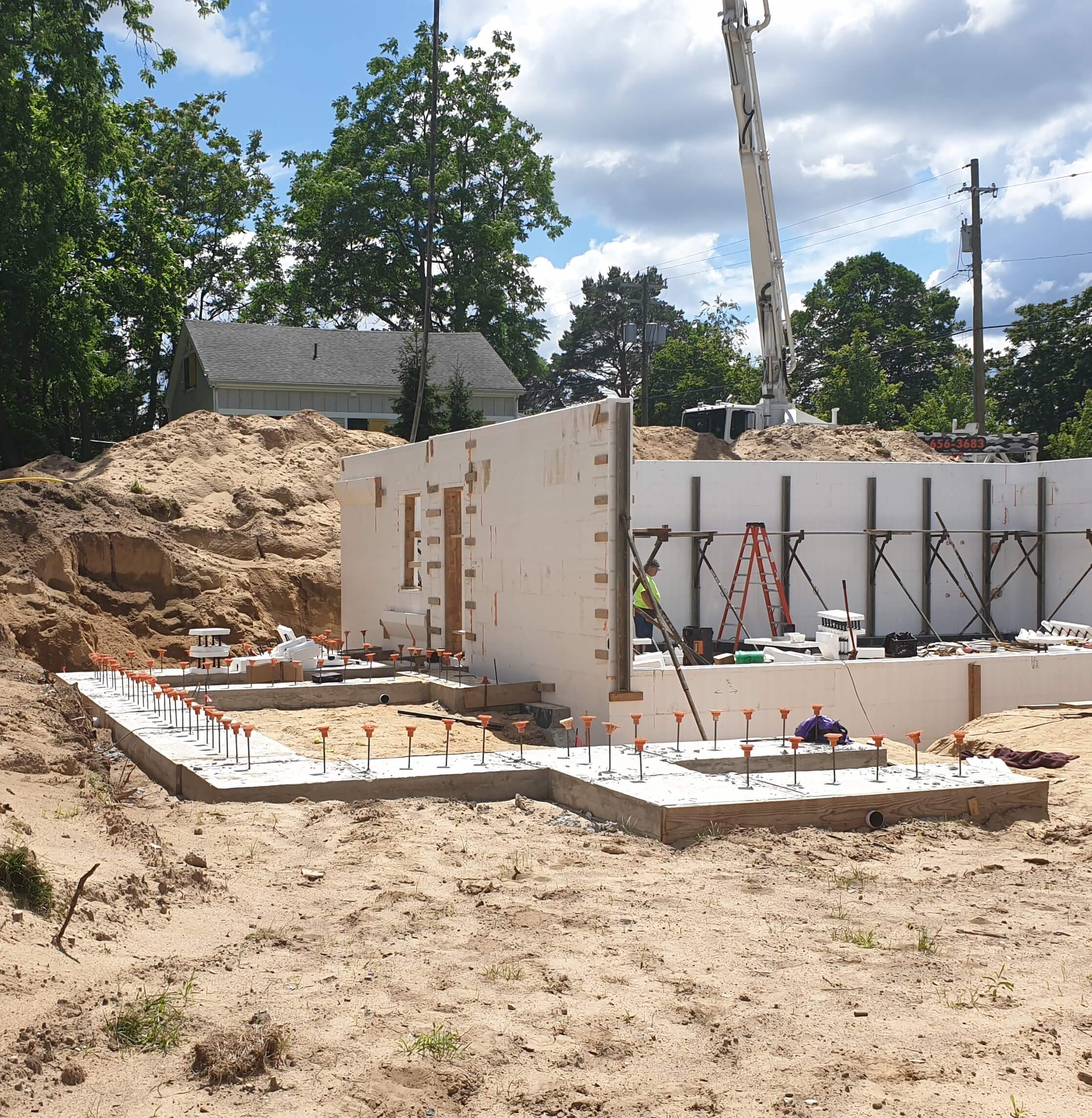Understanding Soil Types: A Key to Successful Percolation Tests
Welcome back to the Doyle Homes blog! As you embark on building your dream home, understanding the soil on your property is crucial. Today, we’re diving into the different soil types you might encounter during a percolation (perc) test and how these soil types affect your custom home project.
What is a Percolation Test?
A percolation test measures the rate at which water drains through the soil. This test is essential for designing an effective septic system, which is crucial for properties not connected to municipal sewer systems. The soil’s ability to absorb water affects the size and type of the septic system needed for your home.
Common Soil Types and Their Characteristics
Let’s explore the main types of soil you might encounter during a perc test and how each type impacts drainage and construction.
- Sandy Soil
- Characteristics: Sandy soil has large, loose particles that feel gritty to the touch. It has high drainage capacity and low water retention.
- Impact on Perc Test: Sandy soil typically drains quickly, resulting in high perc rates. This is ideal for septic systems as it allows wastewater to filter through efficiently.
- Considerations: While good for drainage, sandy soil may require more frequent watering for landscaping due to its low water retention.
- Loamy Soil
- Characteristics: Loamy soil is a balanced mix of sand, silt, and clay, offering a fine, crumbly texture. It is well-aerated and nutrient-rich.
- Impact on Perc Test: Loamy soil generally provides optimal drainage and water retention, making it favorable for most septic systems. It allows for efficient wastewater absorption while preventing waterlogging.
- Considerations: This soil type is ideal for gardening and landscaping due to its nutrient content and good drainage properties.
- Clay Soil
- Characteristics: Clay soil consists of very fine particles that stick together, creating a dense, heavy texture. It retains water well but drains poorly.
- Impact on Perc Test: Clay soil often drains slowly, resulting in low perc rates. This can pose challenges for septic system design, requiring special considerations or alternative systems.
- Considerations: While it holds nutrients well, clay soil can be difficult to work with for planting and may require amendments to improve drainage.
- Silty Soil
- Characteristics: Silty soil has fine particles, similar to clay, but is smoother and more powdery. It retains moisture well but can become compacted easily.
- Impact on Perc Test: Silty soil’s drainage capability is moderate, with a tendency to compact, affecting its perc rate. Proper design and maintenance are necessary to ensure efficient wastewater absorption.
- Considerations: It is fertile and good for agriculture but may need organic matter to improve structure and drainage.
- Peaty Soil
-
- Characteristics: Peaty soil is rich in organic matter and usually dark in color. It retains a lot of moisture and can be spongy.
- Impact on Perc Test: Peaty soil has a high water-holding capacity but can drain slowly. It requires careful assessment to determine suitability for septic systems.
- Considerations: This soil type is excellent for growing plants that thrive in moist conditions but may need drainage improvements for building purposes.
Why Soil Type Matters
Understanding your soil type through a perc test is vital for several reasons:
- Septic System Design: Ensures the septic system is appropriately sized and designed for efficient wastewater management.
- Foundation Planning: Different soils affect the type of foundation required, influencing stability and construction methods.
- Landscaping Decisions: Knowledge of soil characteristics guides planting choices and irrigation practices.

How Doyle Homes Can Help
At Doyle Homes, we assist you in every step of the soil testing and percolation process to ensure your custom home is built on the best possible foundation. Our experts analyze the results and provide tailored solutions that meet your property’s unique needs.
Client Testimonial: “They weren’t just building our house, they were creating a shared vision. If we ever build again, Doyle Homes will be our builder; however, we never want to leave this masterpiece!” – Elisa & Stephen W.
Start Your Custom Home Journey Today
Ready to build your dream home with confidence? Contact Doyle Homes today to schedule your initial consultation and soil testing. Let us help you turn your vision into reality, starting with understanding your land from the ground up.
Contact Us:
Doyle Homes
4926 Chilson Road, Howell, MI 48843
(517) 548-4774
[email protected]
Follow us on Instagram or Facebook for more tips and updates on custom home building!
Tags: #CustomHomeBuilding #SoilTesting #PercTesting #HomeBuildingTips #DoyleHomes
Understanding soil types is crucial for successful home building. Trust Doyle Homes to guide you through the process, ensuring your dream home is built on a strong and stable foundation. Reach out today to get started!

